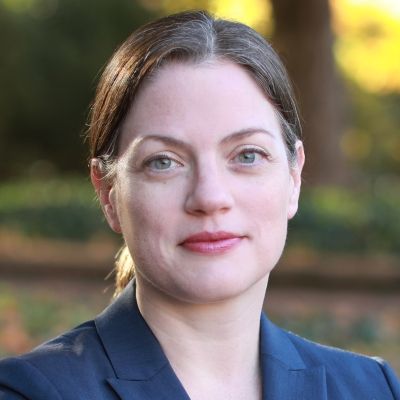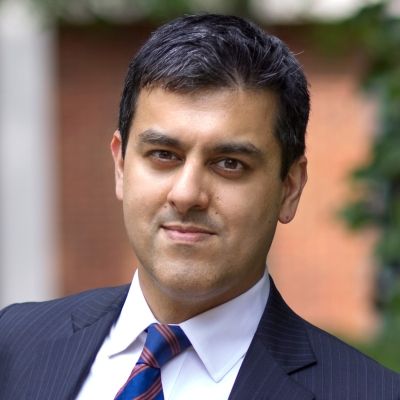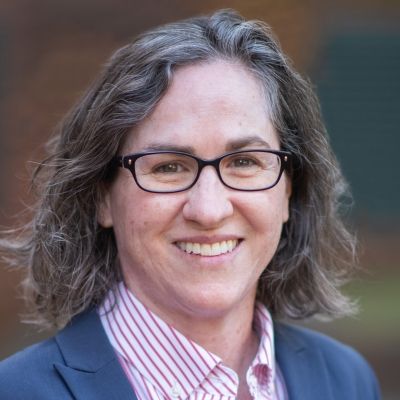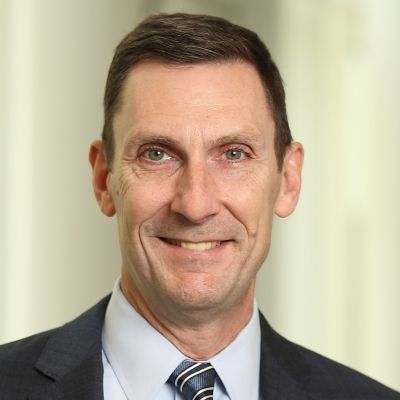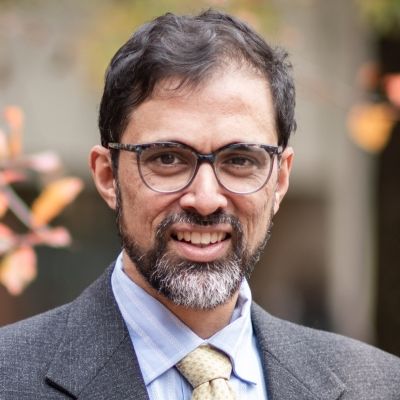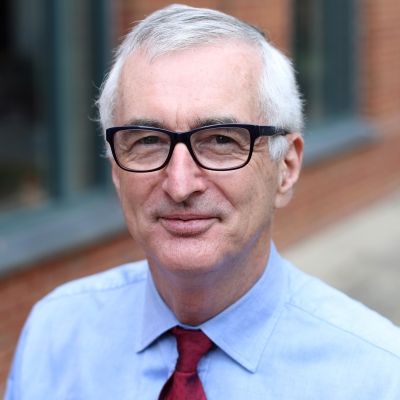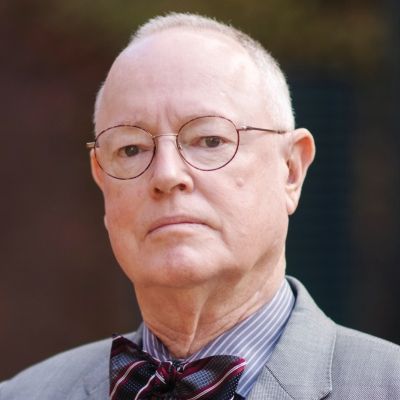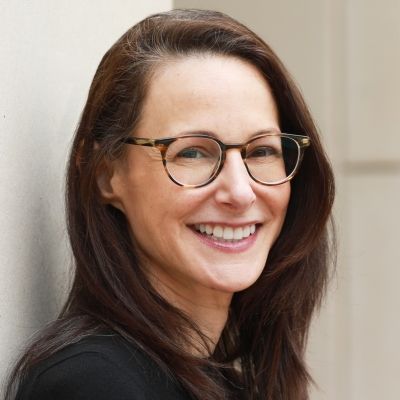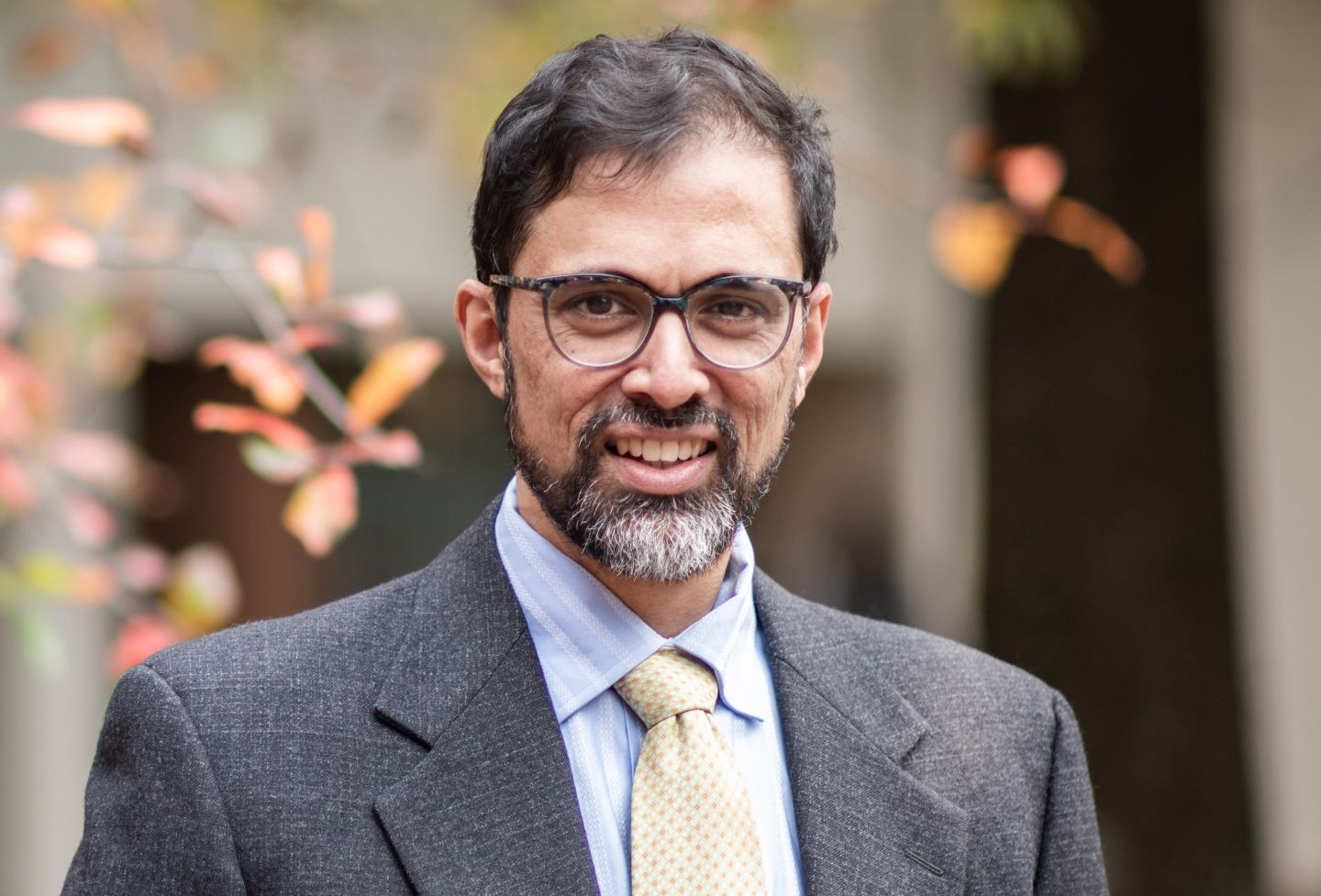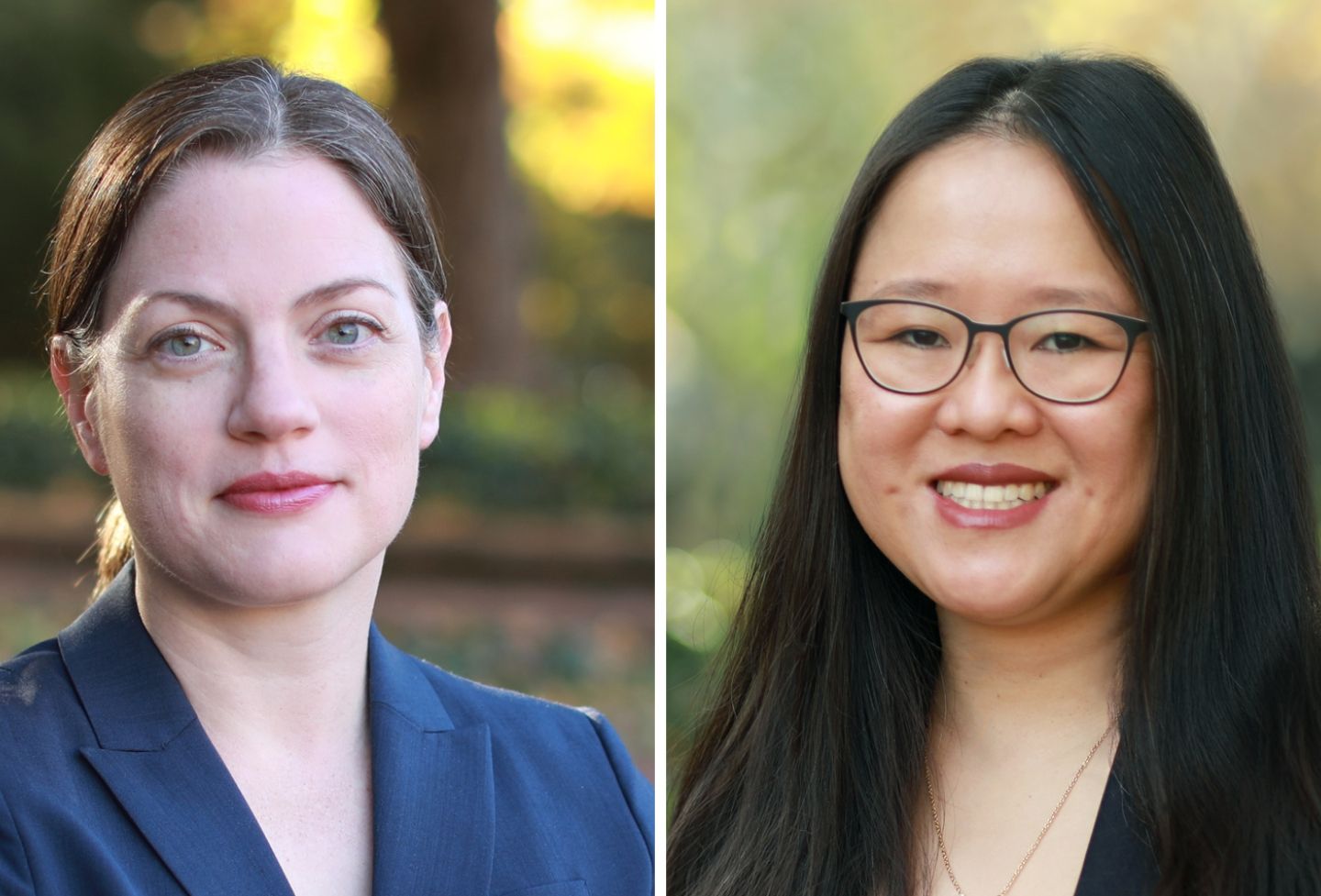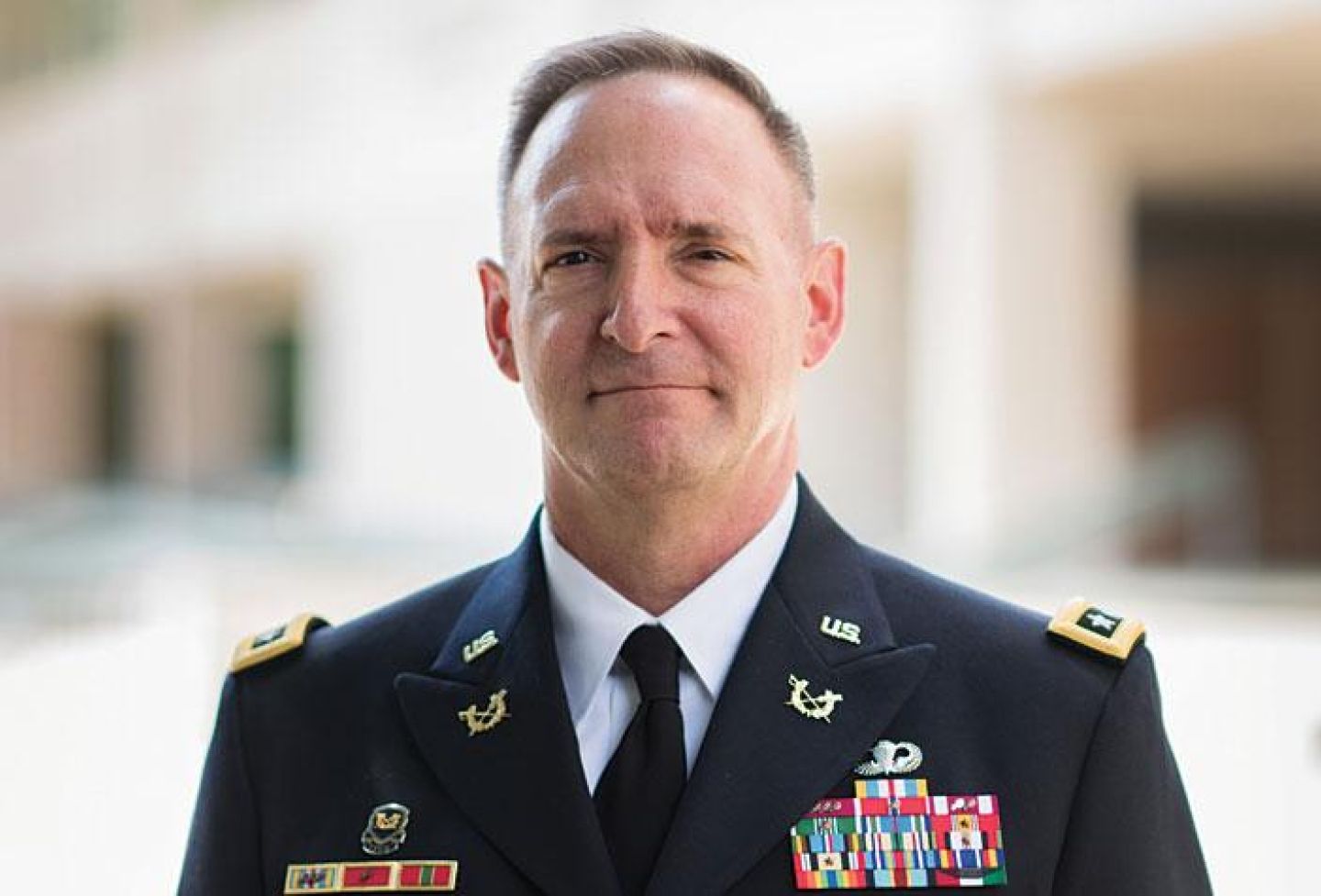About the Program
The Law School’s National Security Law Center allows students to study the most pressing issues in national security law and to explore the wide range of career opportunities available in the field. Our course offerings provide the constitutional and statutory foundations of national security law, but also address contemporary challenges flowing from new technologies, terrorism and geopolitical changes. The center is the hub for national security law activities at the Law School, and cooperates with student groups, faculty members, the Public Service Center and Career Development, and outside organizations to coordinate speakers, events, summer and postgraduate employment, and pro bono opportunities. A leader in national security law since 1981, we take advantage of our proximity to the Judge Advocate General’s Legal Center and School and the wide range of national security practitioners in Washington, D.C., to enrich the Law School’s course offerings with expert speakers from government and policy groups.
A resilience agenda is an essential part of protecting national security in a digital age. Digital technologies impact nearly all aspects of everyday...
In an era defined by partisan rifts and government gridlock, many celebrate the rare issues that prompt bipartisan consensus. But extreme consensus...
The Russian invasion of Ukraine in 2022 provoked the imposition of economic sanctions that are unprecedented in their swiftness, severity, and novelty...
States are increasingly turning to artificial intelligence systems to enhance their national security decision-making. The real risks that states will...
More
National security review of corporate transactions has long been a relatively sleepy corner of regulatory policy. But as governments merge economic...
This article analyses those hurdles, which are different for privately owned property such as oligarch yachts and state property such as bank deposits...
Faculty Director(s)
Kristen Eichensehr
Professor of Law
Director, National Security Law Center
Senior Fellow, Miller Center
A resilience agenda is an essential part of protecting national security in a digital age. Digital technologies impact nearly all aspects of everyday...
In an era defined by partisan rifts and government gridlock, many celebrate the rare issues that prompt bipartisan consensus. But extreme consensus...
The Russian invasion of Ukraine in 2022 provoked the imposition of economic sanctions that are unprecedented in their swiftness, severity, and novelty...
States are increasingly turning to artificial intelligence systems to enhance their national security decision-making. The real risks that states will...
More
National security review of corporate transactions has long been a relatively sleepy corner of regulatory policy. But as governments merge economic...
This article analyses those hurdles, which are different for privately owned property such as oligarch yachts and state property such as bank deposits...
Machine learning algorithms hold out the promise of making sense of vast quantities of information, detecting patterns, and identifying anomalies...
When a state suffers an internationally wrongful act at the hands of another state, international law allows the injured state to respond in a variety...
More
In 2021, the United States and other governments formally blamed Russia for a wide-ranging hacking campaign that breached the update process for...
Spurred by concerns about a Chinese-owned wind farm, Texas recently enacted the Lone Star Infrastructure Protection Act to prohibit companies and...
Some who should know argue, and I find plausible, that among these aspects of AI, accumulation and organization of data sets is the most significant...
As presidents make ever more expansive claims of executive power, Congress’s ability and willingness to counter the executive is limited. That makes...
When a state seeks to defend itself against a cyberattack, must it first identify the perpetrator responsible? The US policy of “defend forward” and...
When a state suffers an internationally wrongful act at the hands of another state, international law allows the injured state to respond in a...
Attribution of cyberattacks requires identifying those responsible for bad acts, prominently including states, and accurate attribution is a crucial...
Reason-giving plays an important role in our system of governance. Agencies provide public reasons when making rules so that individuals affected by...
In recent years, legislative bodies such as the U.S. Congress and the U.K. Parliament have struggled to maintain a role for themselves in government...
Debates about how best to check executive branch abuses of secrecy focus on three sets of actors that have access to classified information and that...
The concept of checks and balances is a core tenet of our democracy; we fear letting any single institution become overly powerful or insufficiently...
Big data technology and machine learning techniques play a growing role across all areas of modern society. Machine learning provides the ability to...
U.S. technology companies are increasingly standing as competing power centers that challenge the primacy of governments. This power brings with it...
Robert Chesney
Harmful lies are nothing new. But the ability to distort reality has taken an exponential leap forward with “deep fake” technology. This capability...
How must states’ intelligence communities (ICs) approach their international law obligations? From the perspective of international law itself, the...
Actors in our criminal justice system increasingly rely on computer algorithms to help them predict how dangerous certain people and certain...
Calls for public-private partnerships to address U.S. cybersecurity failures have become ubiquitous. But the academic literature and public debate...
This symposium discussion of the Loyola of Los Angeles Law Review focuses on the newly enacted Defend Trade Secrets Act (DTSA). Panelists address...
More
Technology has facilitated both the amount of trade secrets that are now stored electronically, and the rise of cyber intrusions. Together, this has...
More
The Bush Administration took a maximalist approach to the jus ad bellum and jus in bello, staking out broad claims about what international law...
Secret international agreements have a bad reputation. Ever since states misused secret agreements during World War I, commentators have condemned...
Judicial and scholarly discussions about checks and balances almost always focus on actions and reactions by domestic actors. At least in the...
Intelligence activity is — or, more accurately, was — the last bastion of foreign relations unconstrained by international law. States could steal...
As the U.N. Charter’s drafters might have predicted, various categories of cases have arisen since 1945 in which states have sought to use force in...
Against all hope for change, President Barack Obama has been a war president and a vigorous one at that. This Article considers the legality of his...
Recent years have witnessed a dramatic increase in digital information and connected devices, but constant revelations about hacks make painfully...
One of the most contested questions in the jus ad bellum is whether and when it is lawful for a state to use force unilaterally before it suffers an...
Widespread disclosures about Western intelligence activities have shone a harsh spotlight on intelligence oversight. Many now doubt that the best...
Edward Snowden’s leaks laid bare the scope and breadth of the electronic surveillance that the U.S. National Security Agency and its foreign...
With the Habeas Clause standing as a curious exception, the Constitution seems mysteriously mute regarding federal authority during invasions and...
Concerns about cyberwar, cyberespionage, and cybercrime have burst into focus in recent years. The United States and China have traded accusations...
As part of a symposium on cyberwar, this invited contribution explores the challenges that new technologies pose for international law. Borrowing from...
Over the course of the twentieth century, the effect of state boundaries as hard-and-fast limits on judicial and legislative jurisdiction steadily...
Several states have been engaged for years in armed conflicts against non-state actors outside their territory. These conflicts implicate a wide...
Many celebrate international law as a way to compel states to protect human rights. Often it serves this role. But sometimes it has the reverse...
The unbounded geography of cyber-conflict poses particular challenges to state sovereignty. Like certain other states, the United States has...
The national security deference debate has reached a stalemate. Those favoring extensive deference to executive branch national security decisions...
United States military forces have been taken a very high-profile role in the development of both the Iraqi and Afghan legal systems for several years...
David Gray
In his insightful article, "The Dangers of Surveillance," 126 Harvard Law Review 1934 (2013), Neil Richards offers a framework for evaluating the...
Law features more prominently in warfare today than in any time in memory. Stories about the legality of detaining “unlawful combatants” or...
I attempt to identify the central conceptual and methodological challenges that must be overcome if the risk assessment of terrorism is to make the...
No form of war is more closely tied to law than counterinsurgency. Counterinsurgency is, at its core, a contest for “legitimacy,” and the legitimacy...
Non-state actors, including terrorist groups, regularly launch attacks against states, often from external bases. When a victim state seeks to respond...
This Essay, written for a symposium commemorating the twentieth anniversary of Employment Division v. Smith, examines the politics of free exercise as...
Frank Pasquale
A new domestic intelligence network has made vast amounts of data available to federal and state agencies and law enforcement officials. The network...
This article is based on a chapter written for The Rule of Law Handbook: A Practitioner's Guide, a handbook used as a text at The Judge Advocate...
Scholars and politicians insist that declarations of war are relics of the past. As proof, they note that in over two centuries the United States has...
Absent from war-powers scholarship is an account of when war and military powers separate and when they overlap. Making arguments sounding in text...
On October 11, 2006, the Department of Justice indicted Adam Gadahn on charges of treason and providing material support to a designated foreign...
In 1981, Israel launched a preemptive attack on the Iraqi Osiraq nuclear reactor. Now a similar strike is being considered against Iranian nuclear...
The Court's docket last Term included five cases directly presenting questions of international law. Republic of Austria v. Altmann raised issues of...
Resident Faculty
Resident Faculty
Administrative law, civil procedure, computer crime, federal courts, national security law
Cybersecurity, foreign relations, international law and national security law
International law and litigation, national security, law of war
Administrative law, constitutional law and history
Constitutional law, antitrust and communications regulation, national security
Separation of powers, presidential powers, constitutional law
Employment discrimination, civil rights and admiralty, civil procedure and international civil litigation
Legal theory, constitutional theory, procedure, philosophy of law
International law, business and economics
Privacy, First Amendment, feminism and the law, civil rights, administrative law
Other Faculty
Courses and Seminars
The following is a list of courses offered during 2021-24. Numbers in parentheses indicate which academic year(s) the courses were offered, i.e., 2021-22 is coded (22), 2022-23 is coded (23) and 2023-24 is coded (24). (SC) stands for short course and (YR) stands for yearlong.
Admiralty (SC) (22,24)
Advanced Crimes and Defenses (JAG) (SC) (22,23,24)
Advanced Topics in Professional Responsibility (JAG) (SC) (23,24)
Advanced Topics in the Law of Armed Conflict (JAG) (SC) (22,23,24)
An American Half-Century (22,23,24)
Border Policy and Politics (22,23,24)
Capitalism and Socialism Seminar (22)
Contemporary Practice of the U.S. Relating to International Law (YR) (22)
Critical Analysis of the Military Justice System (JAG) (SC) (22,23,24)
Cyber and Information Operations I (JAG) (SC) (22)
Cybersecurity Law and Policy (23,24)
Digital Evidence From Theory to Practice (JAG) (SC) (22,23,24)
Economic Statecraft and Public International Law (SC) (22,23)
Emerging Markets: Principles and Practice (22,23,24)
European Union Law (SC) (24)
Foreign Relations Law (22,23,24)
French Public and Private Law (SC) (23,24)
Global Business and International Corruption (SC) (22,23,24)
Globalization and Private Dispute Resolution (SC) (22,23,24)
Governing the World Seminar (22,23,24)
Government Secrecy (24)
History and Evolution of Victims' Rights (JAG) (SC) (22,23,24)
Human Rights Study Project (YR) (23,24)
Immigration Law and Policy (22)
Immigration Law and Policy Lecture (23,24)
Innovating for Defense (22,23,24)
International Arbitration (22,24)
International Business Negotiation (23,24)
International Civil Litigation (22,23)
International Debt Transactions (22)
International Environmental Law (22,23)
International Human Rights (JAG) (SC) (22,23)
International Human Rights Law (22,23,24)
International Law (22,23,24)
International Law and the Use of Force (23)
International Tax Practicum (YR) (22,23,24)
International Taxation (22,23,24)
International Trade Law and Policy (22,23,24)
Introduction to Legal Aspects of Cyberspace Operations (JAG) (SC) (23,24)
Israeli Business Law and Innovation (SC) (23)
Law of Armed Conflict (23,24)
Law of Sea, Air and Space Operations (JAG) (SC) (22,23,24)
National Security Law (22,23,24)
National Security Law Proseminar I and II (JAG) (SC) (24)
Negotiating a Joint Venture in China (SC) (22,23)
Personal Data Protection in Europe (SC) (23)
Perspectives on Sovereignty: Native American Law (23)
Political Prisoners (SC) (24)
Presidential Powers (22)
Rights of the Accused (JAG) (SC) (22,23,24)
Special Topics in Client Services (JAG) (SC) (22,23,24)
Tax Treaties and Other International Tax Topics (22,23,24)
The Economic Tools of National Security (24)
Veteran Benefits and Retirement Planning (JAG) (SC) (22,23,24)
War by Other Means: The Law of Economic and Financial Sanctions (SC) (23)
War Crimes and Atrocity Law (JAG) (SC) (22,23,24)
World War I (22)
Advanced Crimes and Defenses (JAG) (SC) (22,23,24)
Advanced Topics in Professional Responsibility (JAG) (SC) (23,24)
Advanced Topics in the Law of Armed Conflict (JAG) (SC) (22,23,24)
An American Half-Century (22,23,24)
Border Policy and Politics (22,23,24)
Capitalism and Socialism Seminar (22)
Contemporary Practice of the U.S. Relating to International Law (YR) (22)
Critical Analysis of the Military Justice System (JAG) (SC) (22,23,24)
Cyber and Information Operations I (JAG) (SC) (22)
Cybersecurity Law and Policy (23,24)
Digital Evidence From Theory to Practice (JAG) (SC) (22,23,24)
Economic Statecraft and Public International Law (SC) (22,23)
Emerging Markets: Principles and Practice (22,23,24)
European Union Law (SC) (24)
Foreign Relations Law (22,23,24)
French Public and Private Law (SC) (23,24)
Global Business and International Corruption (SC) (22,23,24)
Globalization and Private Dispute Resolution (SC) (22,23,24)
Governing the World Seminar (22,23,24)
Government Secrecy (24)
History and Evolution of Victims' Rights (JAG) (SC) (22,23,24)
Human Rights Study Project (YR) (23,24)
Immigration Law and Policy (22)
Immigration Law and Policy Lecture (23,24)
Innovating for Defense (22,23,24)
International Arbitration (22,24)
International Business Negotiation (23,24)
International Civil Litigation (22,23)
International Debt Transactions (22)
International Environmental Law (22,23)
International Human Rights (JAG) (SC) (22,23)
International Human Rights Law (22,23,24)
International Law (22,23,24)
International Law and the Use of Force (23)
International Tax Practicum (YR) (22,23,24)
International Taxation (22,23,24)
International Trade Law and Policy (22,23,24)
Introduction to Legal Aspects of Cyberspace Operations (JAG) (SC) (23,24)
Israeli Business Law and Innovation (SC) (23)
Law of Armed Conflict (23,24)
Law of Sea, Air and Space Operations (JAG) (SC) (22,23,24)
National Security Law (22,23,24)
National Security Law Proseminar I and II (JAG) (SC) (24)
Negotiating a Joint Venture in China (SC) (22,23)
Personal Data Protection in Europe (SC) (23)
Perspectives on Sovereignty: Native American Law (23)
Political Prisoners (SC) (24)
Presidential Powers (22)
Rights of the Accused (JAG) (SC) (22,23,24)
Special Topics in Client Services (JAG) (SC) (22,23,24)
Tax Treaties and Other International Tax Topics (22,23,24)
The Economic Tools of National Security (24)
Veteran Benefits and Retirement Planning (JAG) (SC) (22,23,24)
War by Other Means: The Law of Economic and Financial Sanctions (SC) (23)
War Crimes and Atrocity Law (JAG) (SC) (22,23,24)
World War I (22)
University of Virginia School of Law professor Saikrishna Prakash has been awarded the 2023 Mike Lewis Prize for his Yale Law Journal article on the commander-in-chief clause.
UVA Law professor Kristen Eichensehr discusses how the conflict in Ukraine highlights broader challenges for U.S. national security and foreign relations, including sanctions policy and cybersecurity. Eichensehr spoke at the Alumni Board and Council luncheon.
Schools and Research Centers
U.S. Army Judge Advocate General’s Legal Center and School
UVA Law students can take certain courses at the neighboring Judge Advocate General’s Legal Center and School, and JAG officers serving in Charlottesville frequently coach UVA Law students serving on trial advocacy teams and in other kinds of competitions.
Professor Thomas B. Nachbar, senior fellow with the center, is a judge advocate in the U.S. Army Reserve, where he has, among other assignments, edited an Army handbook on the development of legal systems, trained Palestinian security forces in the West Bank and deployed to Iraq.
Related UVA Schools and Centers
Frank Batten School of Leadership and Public Policy
The Batten School is committed to solving the world’s toughest policy challenges. Its multidisciplinary approach to problem-solving and emphasis on ethics reinforce the school’s focus on how leadership works, why context matters in decision-making and which actions lead to tangible results. J.D.-M.P.P. Program
School of Data Science
The School of Data Science — the first of its kind in the nation — is guided by common goals: to further discovery, share knowledge, and make a positive impact on society through collaborative, open, and responsible data science research and education. Founded in 2019 through the largest gift in UVA history, the school positions the University and the community to play a national and international leadership role in the global digital future.
The Miller Center
The Miller Center is a nonpartisan affiliate of the University of Virginia that specializes in presidential scholarship, public policy and political history, and strives to apply the lessons of history and civil discourse to the nation's most pressing contemporary governance challenges.
Much like the university where it's made its home, the U.S. Army Judge Advocate General's Legal Center and School can trace its roots back to America's Founding Fathers. At the request of George Washington in 1775, the Continental Congress appointed the Army's first lawyer, known as a judge advocate
Professor Ashley Deeks leads a conversation on national security agencies deploying tools such as artificial intelligence and how they pose challenges to those conducting oversight of U.S. national security activities. The webinar was sponsored by the UVA Law School Foundation.
Student Organizations
John Bassett Moore Society of International Law
The J.B. Moore Society is a driving force in international law activities at the Law School. Each year the society hosts a symposium on topics such as the war on terror or corruption in foreign governments, as well as a lunch lecture series in which international law faculty and foreign graduate students present papers. The society also sponsors the Jessup International Law Moot Court team and pro bono human rights projects. Website
Law, Innovation, Security & Technology
LIST focuses on the novel legal, policy and business problems caused by the recent proliferation of emerging technologies. It educates students about issues in the area; prepares them with practical skills and experience to enter the legal workforce; connects them to a network of mentors, experts and resources; and collaborates with the policy, business and technology communities. Recent areas of focus have included cyber crime, net neutrality and autonomous vehicles, among others. Website
National Security Law Forum
National Security Law Forum connects UVA law students with national security law and broader government issues by hosting speakers, educating students about career opportunities and facilitating student work on national security problems during law school. The forum seeks to produce the next generation of national security law leaders by engaging the school’s faculty, alumni network and connections with the national security community.
Virginia Journal of International Law
Now in its fifth decade, the Virginia Journal of International Law is the oldest continuously published, student-edited law review in the United States devoted exclusively to the fields of public and private international law. It is the most frequently cited student-edited journal of international and comparative law, and the third-most-frequently cited student-edited specialty journal of any kind. Website
Virginia Journal of Law & Technology
UVA Law's only e-journal, VJoLT, provides a forum for students, professors and practitioners to discuss emerging issues at the intersection of law and technology. Recent issues of the journal have included articles on biotechnology, telecommunications, e-commerce, internet privacy and encryption. Website
Virginia Law Veterans
Virginia Law Veterans supports student members of the military community and serves as an information resource for anyone conducting research on national security or international law and policy issues. Membership is open to any interested person and does not require any past or present tie to the military. Website
A paper co-authored by Professors Kristen Eichensehr and Cathy Hwang of the University of Virginia School of Law has been accepted to the 2022 Harvard/Yale/Stanford Junior Faculty Forum.
Neil H. MacBride ’92, general counsel of the U.S. Department of the Treasury, delivers the keynote address for the conference “Regulating Conflict and Competition: The Economic Levers of National Security.” Professor Kristen Eichensehr opened the conference, and Dean Risa Goluboff introduced MacBride. The event was sponsored by the Law School’s National Security Law Center.
Career Opportunities
Students have access to a range of job opportunities relating to national security law, and in the past have worked for the following employers during the summer or immediately after graduation:
- CIA
- National Security Agency
- U.S. Department of Defense Office of General Counsel
- U.S. Department of Defense, Office of Military Commissions
- U.S. Department of Justice, National Security Law Division
- U.S. Department of Justice, Criminal Division (various sections)
- U.S. Department of State
- U.S. Court of Appeals for the Armed Forces
- U.S. Army
- U.S. Navy
- ACLU National Security Project
- U.S. Transportation Security Administration
- U.S. Department of Homeland Security (Homeland Security Investigations, Human Rights Violator and War Crimes Center)
Students and graduates also benefit from an extensive alumni network.
Fellowships
Monroe Leigh Fellowship in International Law
The fellowship provides a total of $10,000 for one or more students to pursue a public international law project of their own choosing during the summer following the first or second year, during the fall and/or spring of the third academic year, or for a postgraduate internship. Application Information
Summer Public Service Opportunities
The Law School, in conjunction with the student-run Public Interest Law Association, offers $3,750 to $6,500 grants to help fund a broad array of summer public interest opportunities, including with federal agencies. Where Recent Fellows Worked
Panelists discuss how the roles and responsibilities related to U.S. cybersecurity are shared by the U.S. Department of Homeland Security, the U.S. Department of Defense and the private sector, and how each woman has become involved in this aspect of national security law. The speakers include M
Events
Lessons of the Economic War on Russia, With Peter Harrell
Wednesday, Oct. 25, 2023
Peter Harrell, former senior director for international economics and competitiveness on the National Security Council, will discuss lessons learned from the economic sanctions levied on Russia following its invasion of Ukraine.
Regulating Conflict and Competition: The Economic Levers of National Security
Friday, Feb. 24, 2023
This conference convenes legal and policy experts to discuss the latest developments in and future trajectories of the economic levers of national security. Neil H. MacBride ’92, general counsel of the U.S. Department of the Treasury, will deliver the keynote address.
‘The Absolutely Indispensable Man: Ralph Bunche, the United Nations and the Fight to End Empire’: A Conversation With Kal Raustiala
Tuesday, Oct. 4, 2022
UCLA law professor Kal Raustiala will discuss his forthcoming book, “The Absolutely Indispensable Man: Ralph Bunche, the United Nations, and the Fight to End Empire.” Professor Kristen Eichensehr, director of the National Security Law Center, will introduce Raustiala and moderate the discussion.
Virginia-Duke Foreign Relations Roundtable
The President’s Delegated Foreign Affairs Powers
Friday, Feb. 26, 2021
This roundtable will explore the general tradeoffs between the need for Congress to delegate authority in the foreign relations sphere and the difficulty that Congress and the courts face in ensuring that the Executive remains faithful to those delegations. More
2021 Cybersecurity Speaker Series
Sponsored by the National Security Law Center; Law, Innovation, Security & Technology; and the National Security Law Forum
A cybersecurity speaker series will explores the challenges cybersecurity poses for governments, private actors, and civil society and how U.S., foreign and international law tackle cybersecurity problems. The series will discuss what to expect on cybersecurity law and policy in the new Biden administration, and will feature current and former U.S. government officials, in-house and outside counsel, and academic and civil society experts. This series is open to the UVA community as well as invited national security law faculty and professionals.
U.S. Government Perspectives on Cybersecurity
Monday, Feb. 8
10:45 a.m.-12:15 p.m. EST
Experts will discuss the tools the U.S. federal government has deployed to address cybersecurity threats, including indictments, sanctions and the U.S. Department of Defense “defend forward” strategy and consider how government policy may change in the near term.
Panelists:
- Gary Corn, Director, Tech, Law & Security Program, American University Washington College of Law; former Staff Judge Advocate to U.S. Cyber Command
- Andrew Grotto, William J. Perry International Security Fellow at Stanford University and Director of the Program on Geopolitics, Technology and Governance at the Stanford Cyber Policy Center; former Senior Director for Cyber Policy, National Security Council
- Kimberley Raleigh, Deputy Chief of the Office of Law and Policy, National Security Division, U.S. Department of Justice
The Private Sector’s Role in Cybersecurity Challenges
Monday, Feb. 15
11 a.m.-12:15 p.m. EST
This panel will highlight the role that in-house and outside counsel play in addressing cybersecurity threats to the private sector, as well as considering applicable U.S. and foreign (especially EU) regulatory regimes and the relationship between the private sector and governments more broadly.
Panelists:
- Cristin Goodwin, Assistant General Counsel of the Digital Security Unit, Microsoft Corp.
- Sean Joyce, Principal, U.S. and Global Cybersecurity and Privacy Practice Leader, PwC; former Deputy Director, FBI
- Ronald Lee, Partner, Arnold & Porter; former General Counsel, U.S. National Security Agency
- Kimberly Peretti, Partner; Co-Chair of Privacy, Cyber and Data Stratagy Team and National Security and Digital Crimes Team, Alston & Bird; former litigator in U.S. DOJ’s Computer Crime and Intellectual Property Section
Cybersecurity and Emerging Technologies
Monday, Feb. 22
11 a.m.-12:15 p.m. EST
This panel will explore the cybersecurity challenges posed by emerging technologies and how new technologies might improve cybersecurity, while also examining related issues like disinformation and artificial intelligence.
Panelists:
- Nathaniel Gleicher, Head of Cybersecurity Policy, Facebook; former Director of Cybersecurity Policy, National Security Council
- Brenda Leong, Senior Counsel and Director of Artificial Intelligence and Ethics, Future of Privacy Forum
- Riana Pfefferkorn, Research Scholar, Stanford Internet Observatory; former Associate Director of Surveillance and Cybersecurity, Stanford Center for Internet and Society
- Moderator: Kristen Eichensehr, Martha Lubin Karsh and Bruce A. Karsh Bicentennial Professor of Law; Director, National Security Law Center; University of Virginia School of Law
